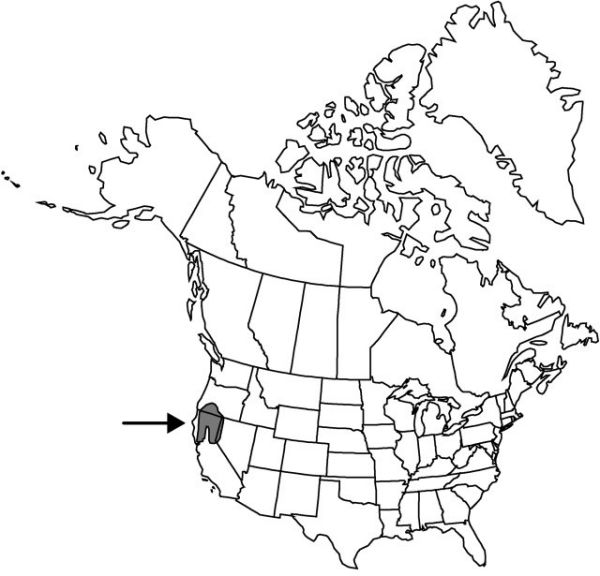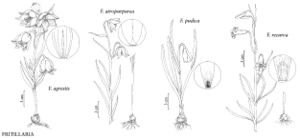Difference between revisions of "Fritillaria recurva"
Pl. Hartw., 340. 1857.
FNA>Volume Importer |
imported>Volume Importer |
||
| (6 intermediate revisions by 2 users not shown) | |||
| Line 8: | Line 8: | ||
}} | }} | ||
|common_names=Scarlet fritillary | |common_names=Scarlet fritillary | ||
| + | |special_status={{Treatment/ID/Special_status | ||
| + | |code=F | ||
| + | |label=Illustrated | ||
| + | }}{{Treatment/ID/Special_status | ||
| + | |code=E | ||
| + | |label=Endemic | ||
| + | }} | ||
|basionyms= | |basionyms= | ||
|synonyms={{Treatment/ID/Synonym | |synonyms={{Treatment/ID/Synonym | ||
|name=Fritillaria recurva var. coccinea | |name=Fritillaria recurva var. coccinea | ||
|authority=Greene | |authority=Greene | ||
| + | |rank=variety | ||
}} | }} | ||
|hierarchy=Liliaceae;Fritillaria;Fritillaria recurva | |hierarchy=Liliaceae;Fritillaria;Fritillaria recurva | ||
| Line 28: | Line 36: | ||
|distribution=Calif.;Nev.;Oreg. | |distribution=Calif.;Nev.;Oreg. | ||
|discussion=<p>Variety coccinea has been recognized by a number of authors, but examination of numerous specimens indicates no consistent distinction. In some cases, different plants from the same population appear to align with different varieties.</p><!-- | |discussion=<p>Variety coccinea has been recognized by a number of authors, but examination of numerous specimens indicates no consistent distinction. In some cases, different plants from the same population appear to align with different varieties.</p><!-- | ||
| − | --><p>The Shasta and Yana tribes used Fritillaria recurva bulbs as food.</p> | + | --><p>The Shasta and Yana tribes used <i>Fritillaria recurva</i> bulbs as food.</p> |
|tables= | |tables= | ||
|references= | |references= | ||
| Line 37: | Line 45: | ||
-->{{#Taxon: | -->{{#Taxon: | ||
name=Fritillaria recurva | name=Fritillaria recurva | ||
| − | |||
|authority=Bentham | |authority=Bentham | ||
|rank=species | |rank=species | ||
| Line 51: | Line 58: | ||
|publication title=Pl. Hartw., | |publication title=Pl. Hartw., | ||
|publication year=1857 | |publication year=1857 | ||
| − | |special status= | + | |special status=Illustrated;Endemic |
| − | |source xml=https:// | + | |source xml=https://bitbucket.org/aafc-mbb/fna-data-curation/src/2e0870ddd59836b60bcf96646a41e87ea5a5943a/coarse_grained_fna_xml/V26/V26_298.xml |
|genus=Fritillaria | |genus=Fritillaria | ||
|species=Fritillaria recurva | |species=Fritillaria recurva | ||
Latest revision as of 21:14, 5 November 2020
Bulb scales: large 6; small 20–30. Stem 3–9 dm. Leaves in 1–3 whorls of 2–5 leaves per node proximally, alternate distally, 3–15 cm; blade linear to narrowly lanceolate. Flowers nodding; perianth slender; tepals scarlet, checkered with yellow adaxially and purple abaxially, 1.5–3.7 cm, apex usually strongly recurved; nectaries yellow, narrowly lanceolate, 1/4 tepal length or less; style obviously branched for 1/4–1/2 its length, branches ± erect, longer than 1.5 mm. Capsules winged. 2n = 24, 36.
Phenology: Flowering Mar–Jun.
Habitat: Dry hillsides in shrubland or woodlands
Elevation: 300–2200 m
Distribution

Calif., Nev., Oreg.
Discussion
Variety coccinea has been recognized by a number of authors, but examination of numerous specimens indicates no consistent distinction. In some cases, different plants from the same population appear to align with different varieties.
The Shasta and Yana tribes used Fritillaria recurva bulbs as food.
Selected References
None.
